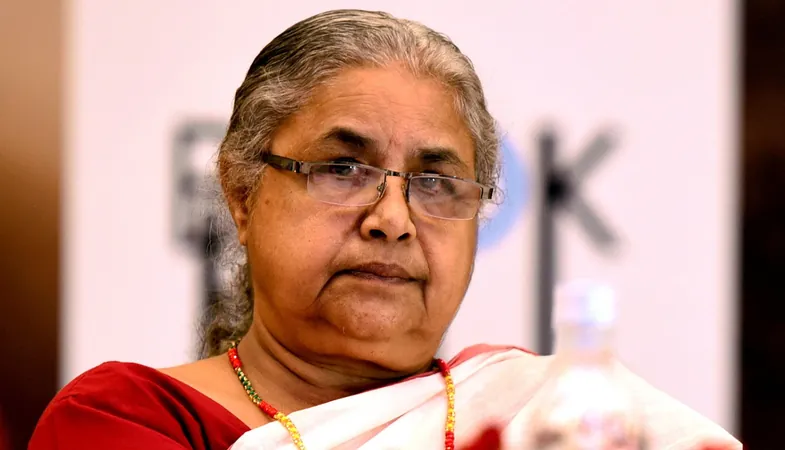
Meet Sushila Karki: Nepal's Trailblazing Interim Prime Minister at 73
2025-09-17
Author: Ling
Nepal's Historic Leadership Change
In a dramatic twist following intense youth protests, Sushila Karki, the former Chief Justice of Nepal, has stepped into the role of interim prime minister, making history as the first woman to lead the nation. Her appointment was announced by President Ramchandra Poudel on September 12 and came just days after violent demonstrations demanding political reform.
Who is Sushila Karki?
At 73, Karki wasn’t actively seeking political power, but rather, she felt compelled to respond to the overwhelming calls from protesters who rallied for change. Following the resignation of former Prime Minister KP Sharma Oli in the wake of unrest, Karki has been tasked with steering the transitional government until elections scheduled for March 2026.
Born in 1952 in Biratnagar, Karki pursued her education in law, earning her degree at Tribhuvan University in 1978. Her ascent to power began as a lawyer and law educator, culminating in her role as Nepal's first female chief justice in 2016. She made headlines when she courageously overturned a controversial police chief appointment, bringing her into conflict with political leaders.
The Turbulent Background
The backdrop to Karki’s appointment is rife with turmoil. Beginning on September 8, massive protests erupted against political corruption and extravagant lifestyles of some government officials. A firmer grip on the media exacerbated tensions when the government prohibited access to multiple social media sites. The subsequent protests turned violent, leading to a tragic toll of at least 51 lives as demonstrators clashed with law enforcement.
In this atmosphere of chaos, Karki emerged as a figure of trust, despite the glaring age gap between her and the predominantly younger protestors. They connected with her integrity and strong anti-corruption stance showcased during her judicial career.
Karki's Initial Actions and Vision
Karki’s inaugural address resonated with the sentiments of the youth. "We must align with the aspirations of Gen Z," she stated, emphasizing a commitment to uprooting corruption and ensuring governance that prioritizes economic equality. Her swift moves include appointing new cabinet ministers to jumpstart the government.
Challenges Ahead
Karki's interim leadership may present a daunting challenge. With parliament disbanded, her capacity to pass new legislation is hampered. Critics are eager for concrete anti-corruption measures and robust economic reforms.
As Nepal gears up for elections in March, the nation is also burdened with the task of regaining stability, particularly in its vital tourism industry, which accounts for a significant portion of the GDP. The path ahead is not easy, and the newly appointed leader must work diligently to restore faith in governance while addressing the aftermath of the recent upheaval.
The Road to Recovery
Karki finds herself at the helm of a country yearning for change. Her challenge will be to not only pacify a distressed populace but also to create an environment conducive to sustainable growth and integrity. Only time will reveal if the people's hopes rest safely in her capable hands.




 Brasil (PT)
Brasil (PT)
 Canada (EN)
Canada (EN)
 Chile (ES)
Chile (ES)
 Česko (CS)
Česko (CS)
 대한민국 (KO)
대한민국 (KO)
 España (ES)
España (ES)
 France (FR)
France (FR)
 Hong Kong (EN)
Hong Kong (EN)
 Italia (IT)
Italia (IT)
 日本 (JA)
日本 (JA)
 Magyarország (HU)
Magyarország (HU)
 Norge (NO)
Norge (NO)
 Polska (PL)
Polska (PL)
 Schweiz (DE)
Schweiz (DE)
 Singapore (EN)
Singapore (EN)
 Sverige (SV)
Sverige (SV)
 Suomi (FI)
Suomi (FI)
 Türkiye (TR)
Türkiye (TR)
 الإمارات العربية المتحدة (AR)
الإمارات العربية المتحدة (AR)